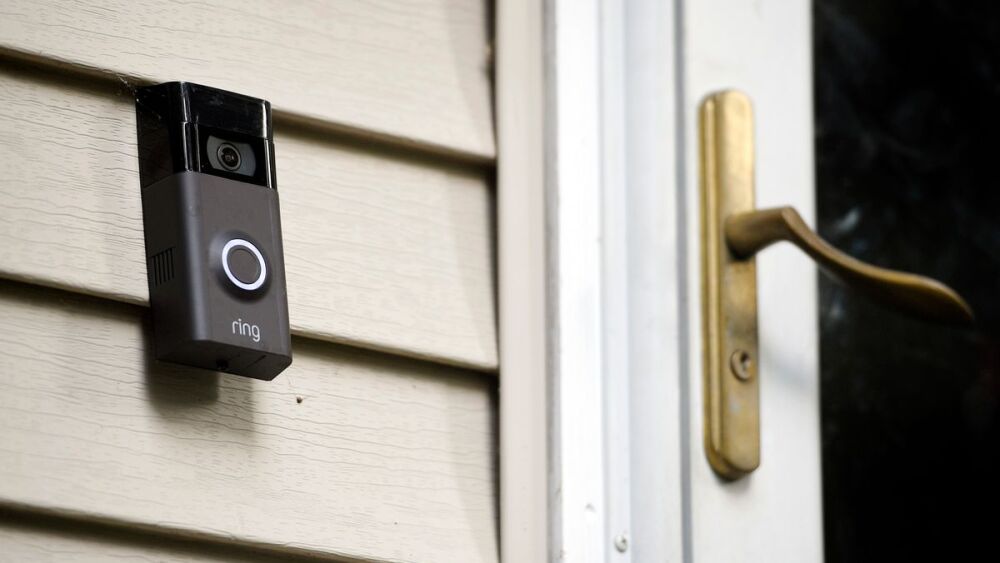By Samuel Dresel II
Do you own a doorbell camera? How about security camera? If not, you may be among the minority.
The low cost and ease of use of these devices has led to countless installations around the world, as residents and business owners seek security around their spaces. In fact, it is estimated that, as of early 2022, 20 million homes in the United States had a video doorbell, and just under 30% of all households have some type of security camera installed. Further, these devices are now being installed in new construction as part of standard equipment or in a “Smart Home” package.
Even with all the good these devices offer, there is one issue that we in the fire service must consider related to their use – the potential public relations problem.
Caught on camera
The public-facing nature of the job puts firefighters in line to be the next viral video. Obviously, the goal of any fire department is that every firefighter responding to an emergency acts with integrity and professionalism. However, when was the last time you thought about what you or fellow members said outside the front door amongst yourselves when it seemed no one was around? Was it appropriate?
I can remember leaving a house to talk to medical direction on the front porch about my patient and the situation. Thinking about it now, I have to wonder if I said anything that could have been misconstrued as disparaging. I assume I did not, but if I did, I could be the next video firehouses are showing on what not to do during patient care.
When talking to other firefighters about this, the issue tends to spark something – a realization of an issue they were aware of but for which they never really considered the consequences. But we see the consequences of caught-on-camera actions in the news on a regular basis. Here are just a few on FireRescue1 that made the headlines because of those consequences:
- Ohio fire chief says he’s ‘embarrassed,’ ‘appalled’ over video of FF spraying man with hose
- Officials release security footage of confrontation between NY fire captain, mayor
- Video: Ind. FF seen shouting at and bumping men filming public incident
- Conn. FD responds after video shows off-duty FF’s comment about naloxone
And if you’re wondering why these articles make the news, it’s because we, as first responders, are held to a higher standard. In her article “Why the media singles out wrongdoing by firefighters, EMTs,” Linda Willing notes that you likely won’t see headlines like “Mechanic arrested for DUI,” but you will see the same about a firefighter. The irresponsible actions of a single first responder can affect the entire department – and fire service – and compromise the implicit trust we’ve established with the community. Any negative press degrades the inherent trust afforded us by the public and could diminish our effectiveness in providing critical services.
Most of the unfortunate incidents caught on camera thus far haven’t been doorbell cams, though. It’s typically cell phones, which are always about 1 second from recording video. All it takes is the push of a button. Certainly, most firefighters are aware of the PR nightmares that can arise from bad behavior on or off duty being caught on cell phone video. It seems it’s just the culture of people to record everything these days. Perhaps they see it as their chance to capture something that can make them “insta-famous” or, worse for us, something to be used in a lawsuit against your fire department. And let’s face it, the fire service makes a lot of noise and a spectacle when we go somewhere, so it is not farfetched to say we capture some would-be-producer’s attention.
Keeping those inappropriate comments and behaviors to yourself helps the public perceive firefighters in the professional light that we strive to uphold.
Nothing is private
Whether it’s a security camera, doorbell cam or cell phone video, we have a much greater chance of being recorded now than ever before. Essentially nothing in the public arena is private anymore. The only thing we can really do is to police ourselves and bring awareness to this potential issue. Again, doing this will go a long way to not becoming a “lesson learned” training and maintaining the public trust the fire service strives to maintain through respect and service.
Related content
- The good and the bad of firefighter behavior and public relations
- The impact of firefighter misconduct and how to manage ethical dilemmas
- Can a firefighter ask a bystander to stop filming an emergency scene?
- Elite expectations: Firefighters should exhibit an ‘Olympic-level attitude’ every day
- The role of your life: Fire service success often comes down to our daily ‘auditions’
About the Author
Samuel Dresel II is an 18-year veteran and self-professed lifelong learner of the fire service. He currently serves as a battalion chief of training for Navy Region Northwest Fire and Emergency Services. Chief Dresel holds a bachelor’s degree in fire science and is currently pursuing a master’s degree in management. He has earned the CPSE Chief Training Officer Designation and is a peer evaluator for CPSE.












